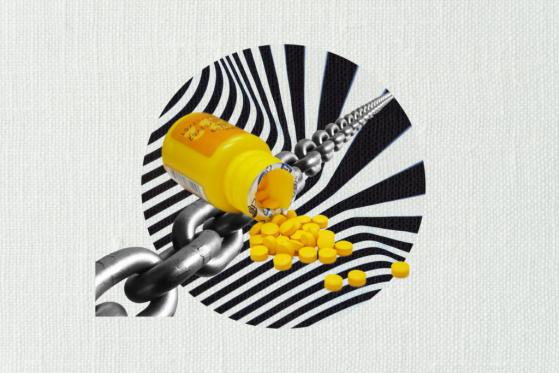Blockchain is mostly associated with the financial sector, but the technology is quickly making its way through other industries, including medicine and science.
Triall is the first organization in the world that began implementing blockchain in clinical trials. The company has created a digital ecosystem of blockchain-integrated software solutions to improve clinical trial processes and solve the industry’s challenges.
During an exclusive interview, the co-founder of Triall, Raymond van der Waal, explained to DailyCoin how the company helps the clinical research industry to advance.
How Is Blockchain Implemented in Clinical Trials?
Triall has developed B2B software solutions that are integrated with blockchain. By anchoring hashed datapoints on the blockchain, Triall’s solutions make sure that essential documents and research data collected during clinical trials are tamper-resistant, improving research integrity and reliability during the development process of new medicines. In addition, by leveraging the blockchain standards of decentralized identifiers (DIDs) and verifiable credentials (VCs), Triall’s solutions will enable secure integrations between the many isolated systems and parties involved in clinical research.
Triall applies blockchain technology to address two industry-wide needs:
“We take an “ecosystem approach” that is unique to the industry: by enabling secure and compliant integrations between currently isolated clinical trial software, we aim to turn current competitors into cooperators for the benefit of faster and more efficient clinical trials,” the co-founder of Triall told DailyCoin.
Blockchain Is Becoming Widespread in Medical Research
“We believe that the use of blockchain technology will become an industry standard and that this will also be mandated by regulators and industry standards development bodies across the globe,” van der Waal said.
In clinical trials, it is all about the establishment of conclusive evidence about the safety and efficacy of new vaccines and therapeutics. Blockchain and related technologies represent incredible tools for ensuring that this evidence is reliable, traceable, and verifiable. These technologies thus provide a solution to the growing number of data integrity and traceability problems we witness in our industry, and that are a growing concern for regulatory authorities and other stakeholders.
Moreover, blockchain-enabled technologies such as decentralized identifiers (DIDs) and verifiable credentials (VCs) offer amazing opportunities for improving the way we handle sensitive medical data in clinical trials, but also more generally. Our vision is that DIDs and VCs will shape a decentralized identity and access management layer that revolutionizes data discovery and exchange, optimizing privacy, security, and operational efficiency for all parties involved.
These are all unique value propositions presented through blockchain that Triall is bringing to the clinical trial industry.
On The Flipside
- It will take time for blockchain to become widely adopted within the medical industry.
- Understanding complex technology and obtaining new skills are crucial for using blockchain.
Why You Should Care?
Blockchain technology can significantly benefit the health care system by providing safe and efficient operations, anonymity, and data integrity without third-party intervention.
EMAIL NEWSLETTER
Join to get the flipside of crypto
Upgrade your inbox and get our DailyCoin editors’ picks 1x a week delivered straight to your inbox.
[contact-form-7] You can always unsubscribe with just 1 click.
